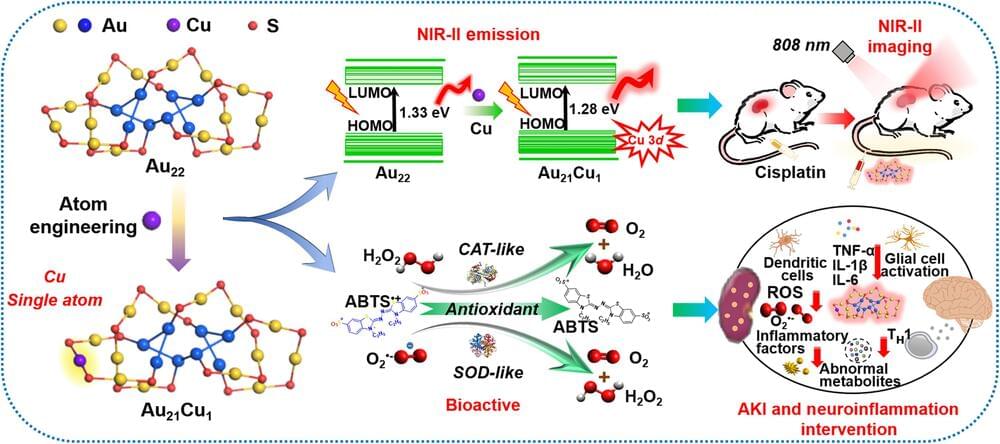The bioactivity of most near-infrared II (NIRII) fluorophores are limited, thereby conflicting the achievement of strong fluorescence and high catalytic activities, due to a lack of free electrons in the method.
To overcome this challenge, Huizhen Ma and a research team in translational medicine, neural engineering, physics, and materials at the Tianjin University China developed atomically precise gold clusters with strong near-infrared II fluorescence to show potent enzyme-mimetic activities by using atomic engineering, to form active copper single-atom sites.
These gold-copper clusters (Au21 Cu1) showed higher antioxidant nature with a 90-fold catalase-like and 3-fold higher superoxide dismutase-like activity compared to gold clusters alone. These clusters can be cleared through the kidney to monitor cisplatin-induced renal injury within a 20–120-minute window to visualize the process in 3D via near-infrared light-sheet microscopy.










Comments are closed.